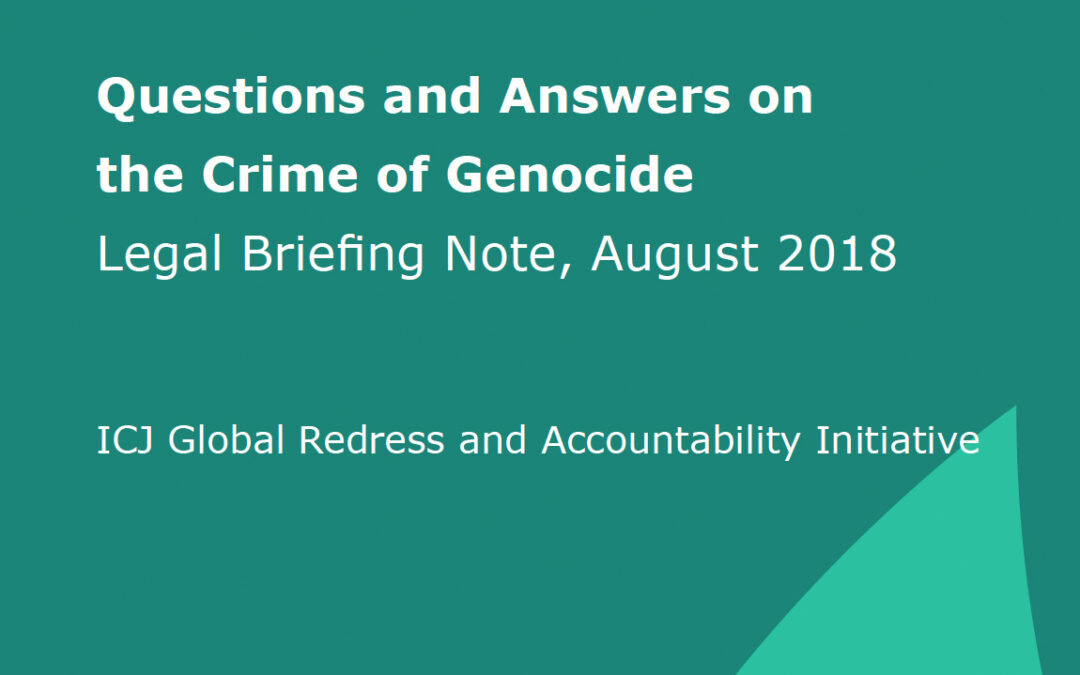
Aug 27, 2018
Today, the ICJ issued a Questions & Answers legal briefing note setting out what is required to prove genocide and, in particular, the element of “genocidal intent”.
This came as the Independent International Fact-Finding Mission on Myanmar (FFM) called for investigations into crimes under international law including genocide.
Genocide is a particularly heinous crime whose genesis as a crime under international law resides in the extermination policies of the Nazi regime during World War Two.
Under customary international law and the Convention on the Prevention and Punishment of the Crime of Genocide 1948 (“Genocide Convention”), all states have a duty to prevent and punish genocide.
UN agencies and independent experts have reported credible and consistent information that serious crimes have been committed under domestic and international law against Rohingya Muslims in Myanmar, including the crimes against humanity of deportation, rape and murder.
A number of experts and authorities have also suggested that genocide may have been committed and have called for investigations in that respect.
Today, the FFM called for investigations into genocide in the north of Rakhine State, as well as for crimes against humanity and war crimes in Rakhine, Kachin and Shan States.
This announcement followed the United Nations High Commissioner for Human Rights, Zeid Ra’ad al-Hussein’s statement in December 2017 that “elements of genocide may be present.”
And in March 2018, UN Special Rapporteur on the situation of human rights in Myanmar, Yanghee Lee, and UN Special Adviser on the Prevention of Genocide, Adama Dieng, raised the possibility that Myanmar’s treatment of Rohingyas may amount to genocide.
Rohingyas constitute the vast majority of the more than 700,000 persons displaced as a result of security operations commanded by Myanmar’s military in northern Rakhine State, following attacks on police posts by the Arakan Rohingya Salvation Army (ARSA) on 25 August 2017.
Genocide is a complex crime that in many instances may be difficult to establish beyond reasonable doubt in a trial setting.
One area that has proved particularly challenging is the requirement to prove “special intent” or “genocidal intent” which is a critical constitutive and distinctive element of the crime of genocide.
The legal briefing note should assist those who are examining whether genocide has been committed against the Rohingya population and, if so, whether anyone can be held individually criminally responsible.
The Q & A answers the following questions:
1. What is the definition of genocide?
2. What does “genocidal intent” mean legally?
3. What are the similarities and differences between the international crimes of persecution and genocide?
4. How have different jurisdictions approached genocidal intent factually?
5. How relevant is any establishment of the intent element of the underlying crimes against humanity of deportation or forcible transfer to the genocidal intent?
Contact
Kingsley Abbott, ICJ Senior Legal Adviser, t: +66 (0)94 470 1345 ; e: kingsley.abbott(a)icj.org
Download
Universal-Genocide Q & A FINAL-Advocacy-analysis brief-2018-ENG (Q & A in pdf)
Summarized Report (in English)
ICJ Genocide Q&A Summary Final Mar 2019 BURMESE(Q & A, summarized version, in pdf in Burmese)
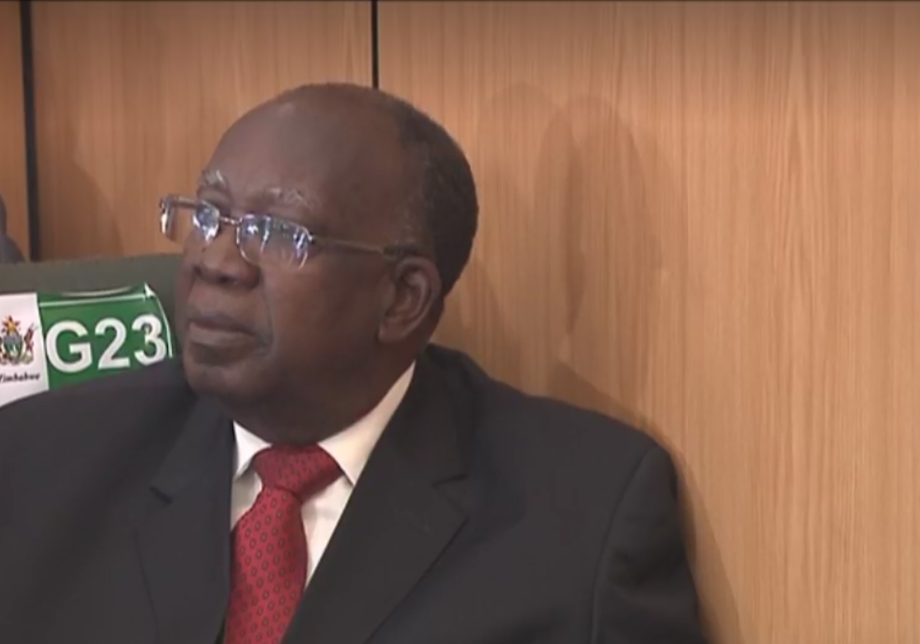
Aug 22, 2018
The ICJ is participating in trial observation mission by leading jurists in hearings on the Zimbabwe Presidential election petition that started at the Constitutional Court in Harare today expected to continue over three days.
Nelson Chamisa of the Movement for Democratic Change Alliance (MDC A), the leading opposition candidate, filed the petition alleging serious irregularities in the way the presidential elections were conducted particularly by the Zimbabwe Electoral Commission (ZEC).
Among other things, he is calling for the elections to be annulled or alternatively for him to be declared the winner.
Both the ZEC and the announced winner incumbent president Emmerson Mnangagwa have filed papers opposing the petition.
The ICJ is conducting a joint trial observation with the Africa Judges’ and Jurists’ Forum in the trial observation mission.
The Mission team is composed of Retired Chief Justice Ernest Sakala (photo) who is a Zambian lawyer and retired Chief Justice of Zambia, Justice Isaac Lenaola a Kenyan lawyer and serving Justice of the Supreme Court of Kenya, since 28 October 2016, Martin Okumu Masiga a Ugandan lawyer and founder member and incumbent Secretary General of the Africa Judges’ and Jurists’ Forum and Simphiwe Sidu a lawyer in the ICJ’s Africa Programme.
The observation mission will include an assessment of the proceedings of the petition in terms of compliance with regional and international human rights law and standards on fair trial and the administration of justice applicable to Zimbabwe.
A statement will be produced at the end of the observation with views that will be made available to the authorities in Zimbabwe and the general public.
Download
A “Question and Answer” briefing paper on the election petition in Zimbabwe is available here for more information:
Zimbabwe-Q and A elections-Advocacy-Analysis brief-2018-ENG (download in PDF)
Contact
Brian Penduka, e: brian.penduka(a)icj.org or t: +263772274307
Arnold Tsunga, e: arnold.tsunga(a)icj.org or t: +27716405926
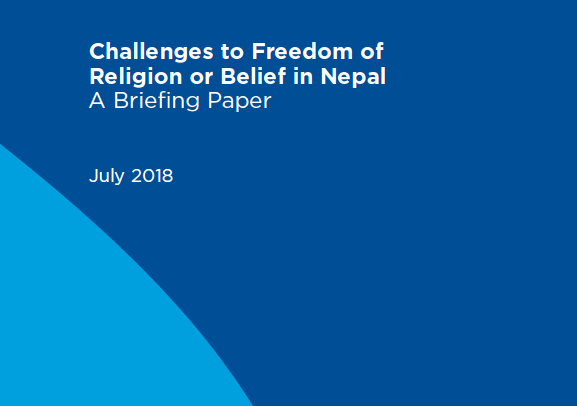
Aug 21, 2018
The ICJ has issued Challenges to Freedom of Religion or Belief in Nepal, in which the ICJ identified a number of challenges related to the protection and promotion of the right to freedom of religion or belief in the country.
These challenges are:
1. the prohibition and criminalization of “proselytism”;
2. criminal offences related to “blasphemy” and “hurting religious sentiment”;
3. discrimination against religious minorities arising from denial of use of burial grounds and cemeteries in and around Kathmandu; and
4. Tibetan Refugees’ exercise of their right to freedom of religion or belief.
In light of concerns detailed in the briefing, and arising in connection with the above-mentioned challenges, the ICJ made a number of recommendations to the authorities of Nepal.
Nepal-Freedom of religion brief-Advocacy-Analysis brief-2018-ENG (full text, PDF)
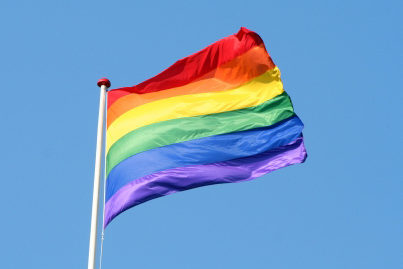
Jul 20, 2018
Supreme Court’s reconsideration of Section 377’s constitutionality is a watershed opportunity to uphold the rights to freedom and equality of every LGBT person, the ICJ said today.
As India’s Supreme Court concludes a week of hearings on the constitutionality of Section 377 of the Indian Penal Code, the ICJ expressed hope that the Court will take the opportunity to invalidate the provision, and take a further step toward the recognition and protection of the full breadth of human rights of LGBT individuals.
In a Briefing Paper issued today by the ICJ on Navtej Singh Johar et al v. Union of India and Others the ICJ further urged the Indian Parliament to repeal the provision entirely.
The Section 377, in effect, criminalizes not a sexual act, but the identity of every LGBT person in India.
The importance of this case emerges from the recognition in international law and in India’s constitutional law that every human being has a right to be free and equal, regardless of one’s real or imputed sexual orientation, gender identity, and expression
The Court has heard arguments in Navtej Singh Johar et al v. Union of India and Others, in which it will reconsider its decision in Suresh Kumar Koushal that upheld the constitutional validity of Section 377, which criminalizes consensual same-sex relations.
The petitioners have argued that the existence of Section 377 deprives them of a number of rights and that the provision is vague, excessive, arbitrary and unreasonable.
“A ruling that Section 377 is unconstitutional would be truly momentous from a human rights perspective,” said Frederick Rawski, ICJ Asia-Pacific Director.
“Such a ruling would not only have impact in India, but would have transnational value, especially across other common law countries, and will provide an impetus to other countries to critically consider the lawfulness of similar provisions that criminalize consensual sexual relations, as being per se contrary to human rights,” he added.
On its face, and in its unjust and arbitrary application, Section 377 is incompatible with India’s international human rights law obligations.
In its 2017 report Unnatural Offences: Obstacles to Justice in India Based on Sexual Orientation and Gender Identity, the ICJ documented how the Indian justice system discriminated against people based on sexual orientation and gender identity, and documented the challenges queer persons face trying to access justice. In the report, it called for the repeal of Section 377.
Under international law, discrimination on the grounds of sexual orientation and/or gender identity is strictly prohibited.
As set out by the Office of the UN High Commissioner of the Human Rights (Born Free and Equal: Sexual Orientation and Gender Identity in International Human Rights Law, OHCHR, 2012), States have five core international human rights law obligations to protect LGBTI rights:
(1) protecting individuals from homophobic and trans-phobic violence; (2) preventing torture and cruel, inhuman, and degrading treatment of LGBTI persons; (3) decriminalizing homosexuality; (4) prohibiting discrimination based on sexual orientation and gender identity; and (5) respecting the freedom of expression, association and peaceful assembly of LGBTI persons. Section 377 violates them all.
“It is encouraging to note the increasing import of international human rights standards, including the Yogyakarta Principles, in relation to sexual orientation and gender identity, in Indian Courts’ jurisprudence,” said Rawski, noting the landmark cases of Naz Foundation v. Government of NCT of Delhi and Others, and National Legal Services Authority v. Union Of India and Others, which cited the Yogyakarta Principles.
The Yogyakarta Principles were also relied upon by petitioners in Navtej Singh Johar et al v. Union of India and Others.
Contact
Maitreyi Gupta (Delhi), ICJ International Legal Advisor for India, e: maitreyi.gupta(a)icj.org, t: +91 7756028369
Read also
ICJ Practitioners’ Guide No. 4: Sexual Orientation, Gender Identity and International Human Rights Law which provides legal practitioners, activists and policy-makers with detailed and practical references on international standards on sexual orientation, gender identity, gender expression, and sexual characteristics.
ICJ Comparative Law Casebook: Sexual Orientation, Gender Identity, and Justice: A Comparative Law Casebook, which provides legal practitioners, activists and policy-makers a compilation of cases and analyses on sexual orientation, gender identity, gender expression, and sexual characteristics.
ICJ India 2017 Report: “Unnatural Offences” Obstacles to Justice in India Based on Sexual Orientation and Gender Identity which provides a legal analyses of the discriminations and abuse faced by the LGBTI community in India based on over 100 interviews with LGBTI persons.
Briefing Paper on Navtej Singh Johar in English (PDF): India-Briefing Paper Navtej-Advocacy-Analysis-2018-Eng
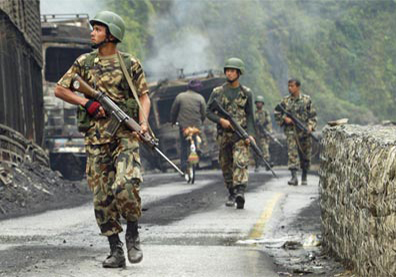
Jul 20, 2018
The legitimacy and viability of the government of Nepal’s draft “Bill to Amend the Act on Commission on Investigation of Disappeared Persons, Truth and Reconciliation, 2014” must be questioned, said the ICJ, Amnesty International and Trial International today.
There is a lack of a meaningful consultation process and serious shortcomings when evaluated against international law and standards, the three international human rights organization say in their preliminary comments on the draft bill.
While welcoming certain aspects of the draft bill, the three organizations identified weaknesses in the draft bill from an accountability perspective that, if not addressed, will contribute to impunity.
This is especially true when it comes to the failure to address the demand for reconstituting the current transitional justice commissions, ensure punishment proportionate to the gravity of the crimes and a need to comply with not just the “letter” but also the “spirit” of decisions by Nepal’s Supreme Court.
Amnesty International, the International Commission of Jurists and TRIAL International called on the government of Nepal to heed the concerns of victims of the conflict-era human rights abuses by embarking on an effective and transparent consultative process that meets the “reparative principle of victim satisfaction”.
“There are critical flaws in the amendment related to accountability for crimes under international law, including crimes against humanity; in relation to sentencing, … and in relation to the overall architecture of the transitional justice process, which must strike a balance between the four pillars of truth, justice, reparations, and measures to avoid repetition of past crimes,” the briefing says.
The organizations also expressed concern about the lack of meaningful consultation with the victims’ community, and urged the government to ensure that the draft bill is responsive to the self-identified needs of victims and civil society.
The briefing also calls on the international community to heed “the lessons of history regarding transitional justice” and read carefully each provision within the context of the law as a whole and in relation to the broader reality on the ground – including a lack of demonstrated willingness to bring all those suspected of criminal responsibility to justice in fair trials.
“The removal of the inclusion of crimes against humanity and the lack of an explicit reference to war crimes demonstrates a weakening commitment to stand against “crimes against humanity” and war crimes, principal crimes under the Rome Statue of International Criminal Court (ICC) and customary international law” the briefing says.
Full Analysis in English (PDF): Nepal-Transitional-Justice-Advocacy-Analaysis-brief-June-2018-ENG









